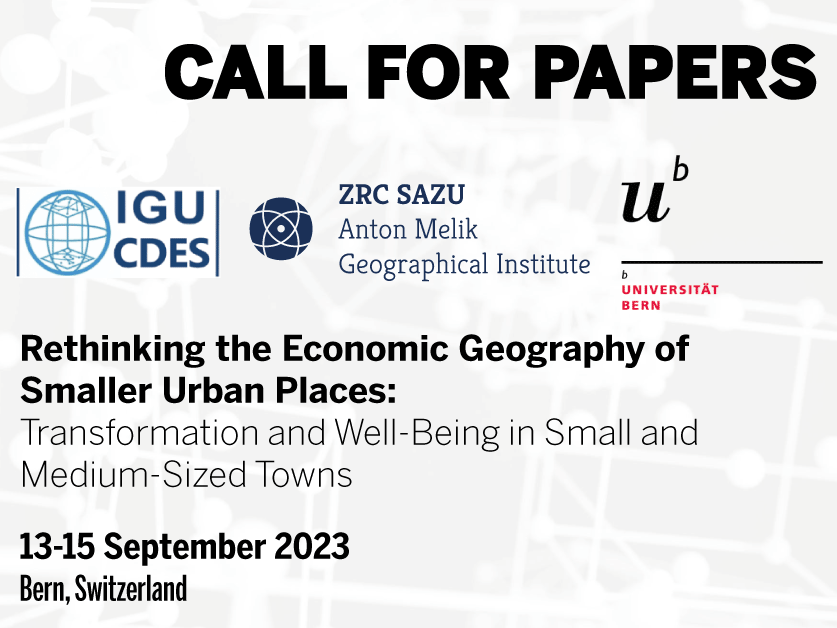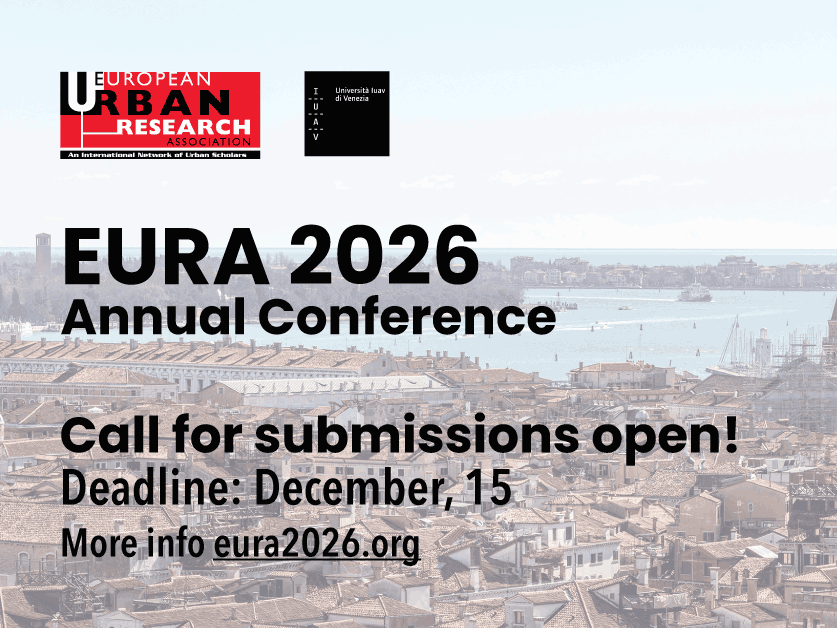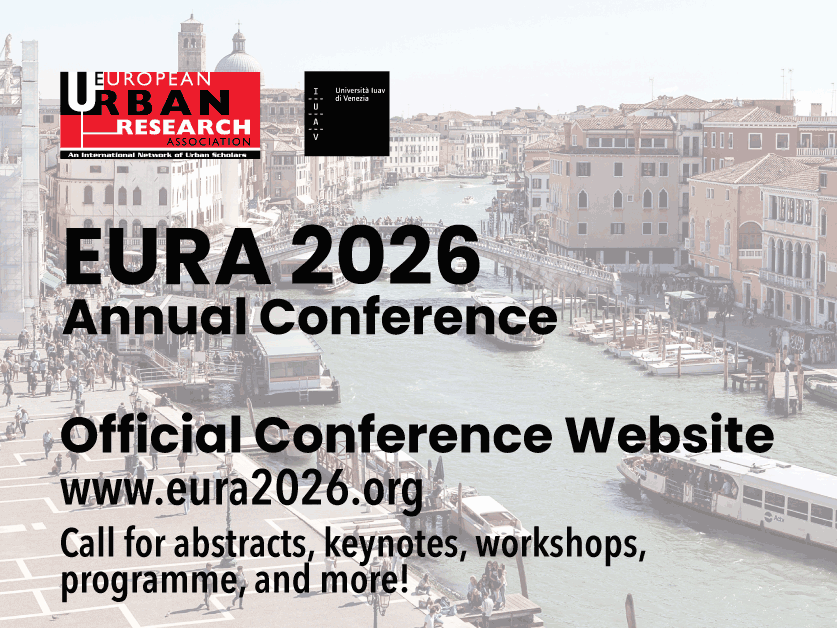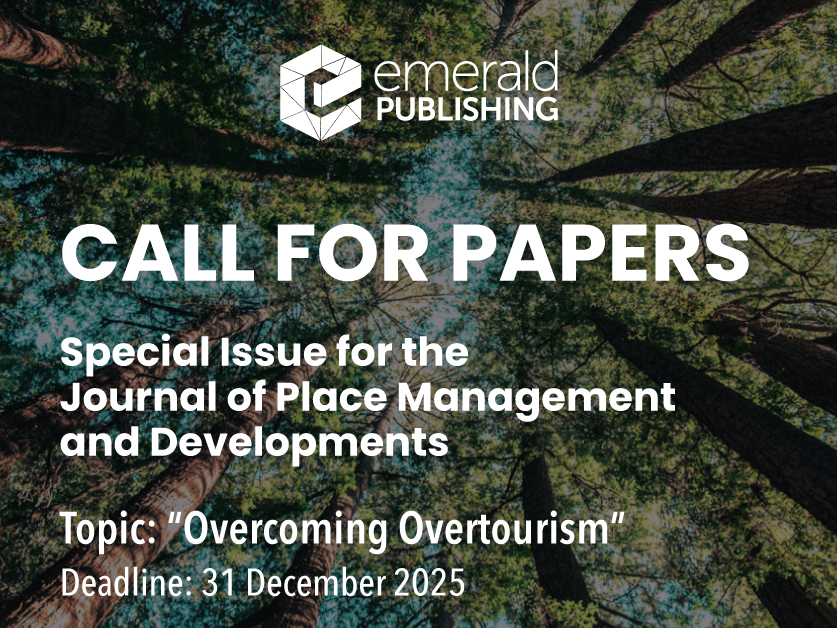
EURA Working Group on Urban Regeneration – Call for membership
07/03/2023
IFHP Summer School 2023 – Call for applications
21/03/2023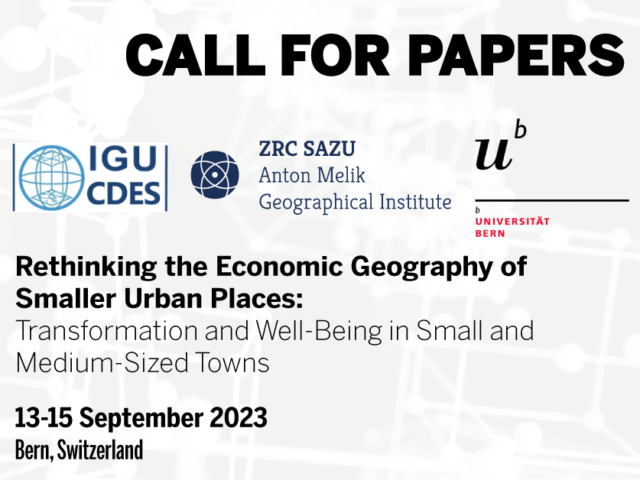
IGU CDES 2023 CONFERENCE
Rethinking the Economic Geography of Smaller Urban Places:
Transformation and Well-Being in Small and Medium-Sized Towns
Call for Papers
Dates: 13-15 September 2023
Location: Bern, Switzwerland
Organised by: Institute of Geography & Center for Regional Economic Development, University of Bern, Switzerland and the Anton Melik Geographical Institute, ZRC SAZU, Slovenia (EURA Institutional Member)
Call for papers deadline: 15 May 2023
Contact: simon.kuenzi@giub.unibe.ch
Overview:
Small and medium-sized towns (SMSTs) are undergoing major socioeconomic transformations in these uncertain times (COVID-19, Russian invasion of Ukraine, technological disruptions, populism upheavals, ageing population, migration, climate change, etc.). Many regions in the world are characterized by small and medium-sized towns (SMSTs) and these smaller urban places are fundamentally changing their economic structures because of these multiple crises. While there has been a recent upsurge in scholarly attention on small and medium-sized towns particularly with regards to their economic role and function, we still know little about how ongoing crises and upheavals influence economic transformation and well-being in them. There is little knowledge about the ways in which firms, communities, local actors in smaller urban places experience socioeconomic transformation and how they position themselves against larger centres of power in times of crises. In addition, we know little whether economic success is automatically reflected in the well-being of local communities and whether economic growth translates into positive social, cultural and political development of SMSTs. Moreover, there is a dearth of theories and concepts that can be applied to the small-town context and that can help us understand these changes.
The organisers invite conceptual and empirical papers that cover the economic geography dimensions of transformation and well-being in small and medium-sized towns. We welcome papers on the following topics, but not limited to:
- Conceptualization and assessment of economic transformation processes in SMSTs or small city-regions
- Displacement and discontent due to economic transformation and (negative and positive) economic development
- Resilience and adaptation to economic transformation strategies by local communities, economic actors such as firms, organizations, public sector, local leaders etc.
- Embedding and disembedding of SMSTs in the global economy through global value chains, global production networks, local anchor firms such as so-called “hidden champions”
- Transformation of economic sectors such as manufacturing, retail, personalized services, tourism, creative industries, etc. in SMSTs
- Industrial culture: how it evolves and transforms SMSTs
- New innovation models and processes in response to multiple crises (COVID-19, climate crisis, economic crisis, etc.)
- Strategies of actors in SMSTs to go beyond small size and to capitalize on concepts such as “borrowing size” or “agglomeration shadows”
- Emerging opportunities as a result of shifting housing demands, shifting work patterns (e.g. homeoffice), changing work culture, etc.
- The role of real estate investors in small and medium-sized towns
- New forms of urbanity and the changing role of residential economies and the foundational economy
- Rethinking economic growth paradigms and sufficiency/post-growth policies in SMSTs
- Planning and policy responses to respond or to foster economic transformation such as Community-Led Local Development (CLLD) or others.
Please send your abstract including 4 to 6 keywords (max. 250 words) to simon.kuenzi@giub.unibe.ch by May 15, 2023
Important dates:
- Deadline for Abstracts: May 15, 2023
- Notification about acceptance: June 1, 2023
- Registration closes: July 1, 2023
- Preliminary Program: mid July 2023
- Final Program: beginning of August 2023
- Conference starts: September 13, 2023
Learn more about Registration, Local Organizing Committee, Venue and Accommodation, Bern, the IGU CDES and IGU, the Institute of Geography & Center of Regional Development, University of Bern, and the Anton Melik Geographical Institute, ZRC SAZU, Ljubljana HERE!

